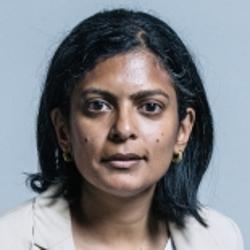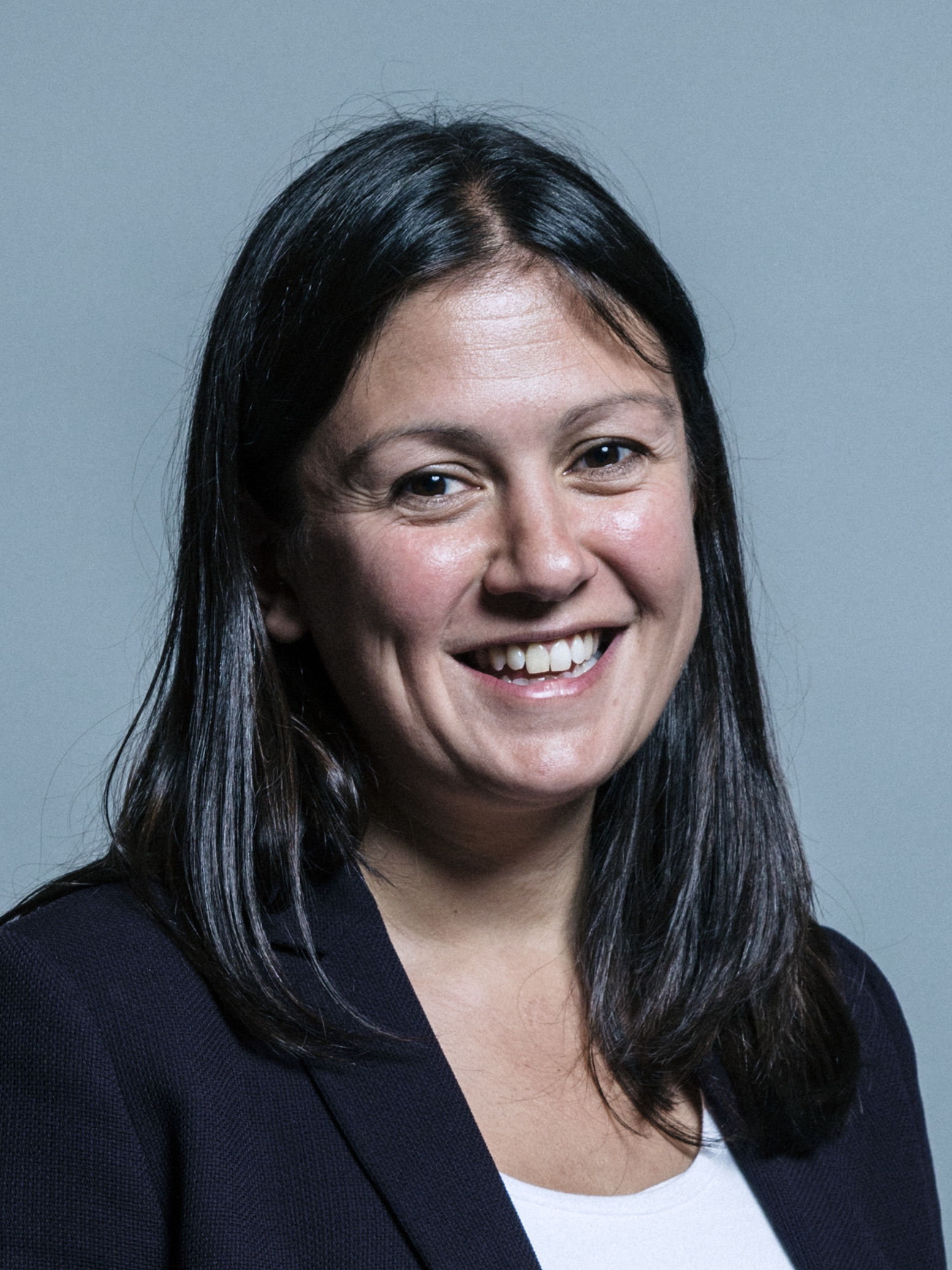Department for Digital, Culture, Media & Sport
The Department for Culture, Media and Sport will focus on supporting culture, arts, media, sport, tourism and civil society across every part of England — recognising the UK’s world-leading position in these areas and the importance of these sectors in contributing so much to our economy, way of life and our reputation around the world.
Shadow Ministers / Spokeperson
Liberal Democrat
Baroness Bonham-Carter of Yarnbury (LD - Life peer)Liberal Democrat Lords Spokesperson (Culture, Media and Sport)
Scottish National Party
Brendan O'Hara (SNP - Argyll, Bute and South Lochaber)Shadow SNP Spokesperson (Culture, Media and Sport)
Green Party
Siân Berry (Green - Brighton Pavilion)Green Spokesperson (Culture, Media and Sport)
Conservative
Nigel Huddleston (Con - Droitwich and Evesham)Shadow Secretary of State for Culture, Media and Sport
Liberal Democrat
Anna Sabine (LD - Frome and East Somerset)Liberal Democrat Spokesperson (Culture, Media and Sport)
Junior Shadow Ministers / Deputy Spokesperson
Conservative
Lord Parkinson of Whitley Bay (Con - Life peer)Shadow Minister (Culture, Media and Sport)
Louie French (Con - Old Bexley and Sidcup)
Shadow Minister (Culture, Media and Sport)
Ministers of State
Baroness Twycross (Lab - Life peer)Minister of State (Department for Culture, Media and Sport)
Ian Murray (Lab - Edinburgh South)
Minister of State (Department for Culture, Media and Sport)
Parliamentary Under-Secretaries of State
Stephanie Peacock (Lab - Barnsley South)Parliamentary Under Secretary of State (Department for Culture, Media and Sport)
10:25
Estimate Memoranda
Organisers and facilitators of major sporting and cultural events are invited to give evidence to a new inquiry from MPs …
To ask the Secretary of State for Culture, Media and Sport, what assessment she has made of the potential merits …
This Order brings into force on 13th February 2023 a variation of the Public Lending Right Scheme 1982 (“the Scheme”) …
A Bill to make provision for the regulation of the processing of information relating to identified or identifiable living individuals; …
15:00
Department for Digital, Culture, Media & Sport Commons Appearances
Oral Answers to Questions is a regularly scheduled appearance where the Secretary of State and junior minister will answer at the Dispatch Box questions from backbench MPs
Other Commons Chamber appearances can be:- Urgent Questions where the Speaker has selected a question to which a Minister must reply that day
- Adjornment Debates a 30 minute debate attended by a Minister that concludes the day in Parliament.
- Oral Statements informing the Commons of a significant development, where backbench MP's can then question the Minister making the statement.
Westminster Hall debates are performed in response to backbench MPs or e-petitions asking for a Minister to address a detailed issue
Written Statements are made when a current event is not sufficiently significant to require an Oral Statement, but the House is required to be informed.
Most Recent Commons Appearances by Category
Bills currently before Parliament
Department for Digital, Culture, Media & Sport does not have Bills currently before Parliament
Acts of Parliament created in the 2024 Parliament
Department for Digital, Culture, Media & Sport has not passed any Acts during the 2024 Parliament
Department for Digital, Culture, Media & Sport - Secondary Legislation
Petitions
e-Petitions are administered by Parliament and allow members of the public to express support for a particular issue.
If an e-petition reaches 10,000 signatures the Government will issue a written response.
If an e-petition reaches 100,000 signatures the petition becomes eligible for a Parliamentary debate (usually Monday 4.30pm in Westminster Hall).
Departmental Select Committee
Culture, Media and Sport Committee
Commons Select Committees are a formally established cross-party group of backbench MPs tasked with holding a Government department to account.
At any time there will be number of ongoing investigations into the work of the Department, or issues which fall within the oversight of the Department. Witnesses can be summoned from within the Government and outside to assist in these inquiries.
Select Committee findings are reported to the Commons, printed, and published on the Parliament website. The government then usually has 60 days to reply to the committee's recommendations.
11 Members of the Culture, Media and Sport Committee

Culture, Media and Sport Committee Member since 9th September 2024

Culture, Media and Sport Committee Member since 21st October 2024

Culture, Media and Sport Committee Member since 21st October 2024

Culture, Media and Sport Committee Member since 21st October 2024

Culture, Media and Sport Committee Member since 21st October 2024

Culture, Media and Sport Committee Member since 28th October 2024

Culture, Media and Sport Committee Member since 9th December 2024

Culture, Media and Sport Committee Member since 27th October 2025

Culture, Media and Sport Committee Member since 27th October 2025

Culture, Media and Sport Committee Member since 28th October 2025

Culture, Media and Sport Committee Member since 13th November 2025
Culture, Media and Sport Committee: Upcoming Events
9 Mar 2026, 5 p.m.
View calendar - Save to Calendar
Culture, Media and Sport Committee - Oral evidence
Children's tv and video content
10 Mar 2026, 9:30 a.m.
At 10:00am: Oral evidence
Witnesses tbc - tbc at YouTube
View calendar - Save to Calendar
Culture, Media and Sport Committee: 7 Current Inquiries
Culture, Media and Sport Committee: Previous Inquiries
50 most recent Written Questions
(View all written questions)The Advertising Standards Authority (ASA) is the independent regulator for advertising in the UK and enforces the ‘CAP Code’ and ‘BCAP Code’, which set the standards for non-broadcast and broadcast advertising, respectively. These codes include specific rules intended to protect consumers from misleading marketing communications. If advertising includes the omission, exaggeration, or ambiguous presentation of information, it can be considered misleading. The Advertising Standards Authority (ASA) has also set guidance about how companies advertise broadband speeds. The ASA recommends that companies show the average speed that at least 50% of their customers receive at the network’s busiest time (8-10pm) to not be considered misleading.
If an advertisement is found to be in breach of the codes, the ASA will instruct that it be withdrawn or amended, and in some cases may escalate to the appropriate statutory backstop.
Minister of State (Department for Science, Innovation and Technology)
We have set out our expectation that all duty bearers, including Departments and their arm’s-length bodies, follow the law as clarified by the Supreme Court ruling and seek specialist legal advice where necessary. The Prime Minister has underlined this recently.
The Equality and Human Rights Commission has submitted a draft Code of Practice on services, public functions and associations to Ministers, and we are reviewing it with the care it deserves. This will provide further guidance to duty bearers.
Minister of State (Department for Science, Innovation and Technology)
Last year the government announced new consumer protection measures in the ticketing market. A strong consumer protection regime is essential for protecting consumers from harmful practices and stimulating competition to drive down prices. It is also good for businesses – helping to create a level playing field by penalising unscrupulous competitors and giving consumers greater confidence to engage in markets.
The Competition and Markets Authority (CMA) already has powers to investigate and take action against businesses that breach competition law, including by abusing a dominant position in a market. The CMA is currently investigating two secondary ticketing sites for potential breaches of the Digital Markets, Competition and Consumers Act 2024, under which traders are prohibited from showing consumers an initial headline price for a product and then introducing additional mandatory charges as consumers proceed with a purchase or transaction.
To drive the long-term growth of the UK music sector, the government’s Creative Industries Sector Plan announced a Music Growth Package of up to £30m over three years, launching this spring and designed to boost domestic and international activity in our music sector and encourage private investment. We have also encouraged widespread adoption of a voluntary industry ticket levy on arena and stadium gigs to reverse the decline in grassroots venues and enable more artists to tour internationally.
Minister of State (Department for Science, Innovation and Technology)
We do not hold this information, as it is difficult to calculate the exact number of people who use unlicensed operators. British consumers using these sites do so using a virtual private network which affects web traffic data.
However, the Government remains committed to tackling the illegal market and the threats it poses to British consumers. Last year, the Gambling Commission published a series of research reports on the illegal market and is working to further improve its evidence base. We also invite further information on the use of unlicensed operators through the consultation process.
Minister of State (Department for Science, Innovation and Technology)
On 2 March DCMS announced £150,000 for public libraries to support the National Year of Reading. Funding will be delivered by The Reading Agency in support of the Go All In campaign to reconnect people with reading for pleasure.
The £150,000 fund is expected to support projects across 72 library authority areas which are disadvantaged by high deprivation, weak social infrastructure and low library engagement with the aim of encouraging greater library use and new members.
Public libraries are central to the success of the National Year of Reading’s campaign to engage people of all ages with reading across the UK. The Reading Agency has been appointed to work with sector partners to deliver and support public library engagement. The Summer Reading Challenge in 2026, and World Book Night, the annual celebration of reading for adults on 23 April 2026, will be key moments for libraries during the National Year of Reading 2026. Throughout the year, The Reading Agency will provide public libraries with resources, toolkits, and print and digital materials to support their work and boost engagement.
Minister of State (Department for Science, Innovation and Technology)
This year the statutory levy has raised just under £120 million, which will be ringfenced solely for the use of tackling gambling-related harm. Details on how this has been allocated are available in this Written Ministerial Statement.
DCMS will publish an Annual Report setting out each year how levy funds have been spent. We expect the first Annual Report to be published this summer.
Minister of State (Department for Science, Innovation and Technology)
Arts and culture in Scotland is a devolved matter.
The UK Government provides the Scottish Government with a settlement through the Barnett Formula which they can spend on cultural activities and priorities across Scotland. The Scottish Government also has substantial revenue raising capability. Support for the National Galleries Scotland’s project The Art Works in North Edinburgh is best directed to the Scottish Government who make the decisions about how to prioritise cultural funding.
Minister of State (Department for Science, Innovation and Technology)
DCMS does not hold data on the number of visitors to sites owned by Historic England. The National Heritage Collection, operated by English Heritage Trust, comprises more than 400 historic sites and monuments, and the majority of these are free to enter. As some of these sites are not staffed on a day-to-day basis, English Heritage are unable to collect complete data on visitors to these sites by age group.
Minister of State (Department for Science, Innovation and Technology)
At the Spending Review 2025, HM Treasury agreed budgets for Departments for a three-year period for Resource DEL, and a four-year period for Capital DEL. The Department then completed a Business Planning process to allocate this funding to programmes. This included £92 million (£23 million per year) for the Places of Worship Renewal Fund.
At Spending Reviews, the Devolved Governments generally receive Barnett consequentials as a proportion of overall departmental settlements, not specific funding lines or programmes. Barnett consequentials were confirmed taking into account the overall DCMS allocation, which includes funding for the Places of Worship Renewal fund. Decisions on the allocation of this funding are then for the Devolved Governments to take.
Minister of State (Department for Science, Innovation and Technology)
The Government introduced a statutory gambling levy, a mandatory charge on licensed gambling operators, in April 2025. Funds collected from the levy will be used exclusively for the research, prevention and treatment of gambling harm across Great Britain. The levy has raised just under £120 million in its first year.
20% of these funds will be allocated to research, 30% to prevention and 50% to treatment. Scotland and Wales will receive their appropriate share, to ensure prevention, treatment and support are available across Great Britain.
Officials are in frequent contact with officials in the Scottish and Welsh Governments, ensuring a stable transition to the statutory system. Additionally, both Welsh and Scottish officials sit on the Levy Delivery Group and the Levy Programme Board, each meeting quarterly. Terms of reference and membership of these groups can be found here.
While the UK Government and Scottish and Welsh Governments are coordinating closely on levy implementation, health policy is a devolved matter.
Minister of State (Department for Science, Innovation and Technology)
Joshua Reynolds
(Liberal Democrat - Maidenhead)
We cannot provide the number of HR Directors or details of their professional qualifications. Disclosing this information would breach the Data Protection Act and risk identifying individual staff members because the data concerns five or fewer employees and relates to individuals other than the data subjects. We do not hold data on the qualifications held by employees of DCMS Arms Length Bodies.
Minister of State (Department for Science, Innovation and Technology)
Historic England's Heritage at Risk Register, last published on 6 November 2025, identified 4,891 heritage assets at risk in England. The register identifies designated sites that are most at risk of being lost as a result of neglect, decay or inappropriate development. More information can be found on Historic England’s website: https://historicengland.org.uk/advice/heritage-at-risk/buildings-at-risk/.
While no assessment has been made of the adequacy of apprenticeship and training provisions to support the repair and conservation of heritage, the Department for Culture, Media and Sport is working with the heritage sector to utilise the government’s investment in skills education to grow the workforce. We are engaging with the Department for Education and Skills England to ensure heritage skills are recognised and developed. Through the fully funded SME apprenticeships for under-25s, we are giving smaller heritage organisations the opportunity to deliver flexible, affordable apprenticeships in heritage skills and conservation.
Minister of State (Department for Science, Innovation and Technology)
Newcastle-under-Lyme and Staffordshire received Million Hours Funding, to enable local youth services to deliver more positive activities in anti-social behaviour hotspots, giving young people a place to go and reducing young people's involvement in crime.
In December 2025, we launched Youth Matters: Your National Youth Strategy’ a 10 year plan to ensure every young person across the country has somewhere to go, someone who cares for them and a community they feel part of.
This is backed by over £500 million of new youth funding over the next 3 years from DCMS, which complements a range of funding committed by other departments. The majority of the funding underpinning the first steps of the Strategy will be available from next the financial year 2026/27. We will share more information as our plans develop, including details on the eligible areas for funding.
Parliamentary Under Secretary of State (Department for Culture, Media and Sport)
I am responding as the Minister for Sport, Tourism, Civil Society and Youth with responsibility for DCMS youth enrichment policy.
On 10th December 2025, we published ‘Youth Matters’, the first cross-government Strategy for young people in England in 15 years. Backed by £500m of DCMS funding over the next 3 years, the Strategy will ensure every young person has somewhere to go, someone who cares for them and a community they feel part of. We are working closely with Other Government Departments to ensure the successful delivery and accountability of the National Youth Strategy, including the implementation of enriching activities for young people. This involves establishing a cross-government reporting and governance process to ensure successful delivery.
Parliamentary Under Secretary of State (Department for Culture, Media and Sport)
I am responding as the Minister for Sport, Tourism, Civil Society and Youth with responsibility for DCMS youth enrichment policy.
On 10th December 2025, we published ‘Youth Matters’, the first cross-government Strategy for young people in England in 15 years. Backed by £500m of DCMS funding over the next 3 years, the Strategy will ensure every young person has somewhere to go, someone who cares for them and a community they feel part of. We are working closely with Other Government Departments to ensure the successful delivery and accountability of the National Youth Strategy, including the implementation of enriching activities for young people. This involves establishing a cross-government reporting and governance process to ensure successful delivery.
Parliamentary Under Secretary of State (Department for Culture, Media and Sport)
James McMurdock
(Independent - South Basildon and East Thurrock)
DCMS operates a ‘hybrid’ approach led by business needs, and as a result many employees will work both from home and in the workplace on an informal basis. DCMS staff agree to a contracted office location at the time of their appointment, with hybrid working as the default working pattern. Therefore staff are categorised as either office-based or remote-working (homeworking).
Fewer than five employees (less than 1% of the workforce) are designated as contractual homeworkers.
DCMS remains committed to flexible working and the business benefits that it offers, including supporting the Civil Service priority of ensuring continued, effective and productive delivery of the work carried out by civil servants across the full range of services.
Minister of State (Department for Science, Innovation and Technology)
We consider a wide range of evidence when making policy and regulatory decisions. This includes consideration of Sheffield University’s recent report on World Cup advertising and its impact on gambling behaviour.
All operators advertising in the UK must comply with robust advertising codes. These codes are regularly reviewed and updated. In this context, those include a ban on gambling advertisements during pre-watershed live sports broadcasts lasting from 5 minutes before to 5 minutes after the event itself.
The Government recognises that exposure to gambling advertising is an important issue. We continue to consider a wide range of evidence in this space and will work closely with relevant stakeholders to further strengthen protections. This includes our recent announcement of an intention to consult on banning sports sponsorship by unlicensed gambling operators.
Minister of State (Department for Science, Innovation and Technology)
The Public Libraries and Museums Act 1964 requires all local authorities in England to provide a comprehensive and efficient library service. Each local authority is responsible for assessing the needs of their local communities and designing a library service to meet those needs within their available resources.
Library service provision, including the number and location of static libraries, should take account of factors such as the rurality of the area and the availability and cost of public transport links. The statutory library provision in Nottinghamshire is delivered from 58 static libraries, as well as a mobile library service, consisting of three library vehicles, and a home library service.
The Libraries Improvement Fund which enables library services to upgrade buildings and technology so they are better placed to respond to the changing ways people are using them, has, since June 2021, provided nearly £400,000 to support various projects in Nottinghamshire libraries, including self-service technology in Huthwaite.
Minister of State (Department for Science, Innovation and Technology)
The Places of Worship Renewal fund will have a budget of £23 million per year, continuing the 2025/26 funding levels of the previous scheme. The new fund will award grants for total project capital works rather than being restricted solely to the VAT element. By shifting the focus to overall project costs, the scheme ensures that in many instances, the financial support granted to preserve these historic community spaces could exceed the amount currently provided under the VAT-only model.
While an official estimate of the specific impact of VAT implications on those churches that provide warm community spaces has not been calculated, the design of the new Places of Worship Renewal Fund is intended to offer broader support for historic churches than simply rebating VAT, including those churches serving as vital community hubs.
Minister of State (Department for Science, Innovation and Technology)
Further details regarding the timeline, eligibility criteria and application process for the new Places of Worship Renewal Fund will be published in due course.
Minister of State (Department for Science, Innovation and Technology)
Market towns are an important part of our national story. In March of last year, Minister Peacock responded to the Westminster Hall Debate on the Cultural Heritage of Market Towns outlining this importance.
Heritage funding can be accessed for projects in market towns and is administered through the Department for Culture, Media and Sport’s Arms-Length Bodies. The National Lottery Heritage Fund provides grants of £10,000 to £10 million for heritage projects. Similarly, Historic England can provide grants, funding and advice.
In January 2026, the Secretary of State announced nearly £200 million of new heritage funding will be made available over the next 4 years. This includes £60 million for for at risk heritage which provides grants towards repairs and conservation of historic buildings, £41 million for the Heritage Revival Fund which helps communities to take control of and look after local heritage and bring buildings back into public use and £92 million for the Places of Worship Renewal Fund, a new capital scheme to support places of worship.
Minister of State (Department for Science, Innovation and Technology)
This Government is committed to supporting people at risk of loneliness, including the elderly, to have the social connections they need. Our ambition to strengthen positive social connections is a key part of achieving wider government objectives to create a healthier society and more connected communities across all ages. My department has been working hard to ensure social connection and tackling loneliness are key themes throughout government policy.
The government funds the Tackling Loneliness Hub, an online forum for people working on loneliness to come together and share insights, research and best practice.
Parliamentary Under Secretary of State (Department for Culture, Media and Sport)
The Government committed to a review of statutory notices as part of the response to recommendations made by the Licensing policy taskforce in July 2025, including in relation to alcohol licence notices. The review is being taken forward as part of the Local Media Strategy to support local journalism.
We recognise that local press and statutory notices, including those relating to planning applications, continue to play a central role in keeping communities informed about decisions that affect local services and amenities. The industry’s Public Notice Portal is a welcome innovation, taking advantage of print publishers’ growing digital audiences and providing a centralised resource for all types of public notice. We welcome the Portal's expansion to include archive and consultation functions, helping public bodies and commercial entities engage with the public more effectively. DCMS is monitoring the progress of the Portal and the effect that it has on the audience reach of statutory notices and overall public engagement.
This type of industry innovation and collaboration is integral to securing the sector’s future and will be taken into account in the statutory notices review. The review will more broadly consider the potential merits of making changes to existing requirements to place statutory notices, including planning applications, in print local newspapers, as well as any potential role for online newspapers. More detail will be announced in due course, including timescales of the review and the wider Local Media Strategy.
Minister of State (Department for Science, Innovation and Technology)
The Future of TV Distribution Stakeholder Forum met 6 times times over the course of one year, to identify key issues, build the evidence base, and explore policy options. The Stakeholder Forum was supported by three working groups covering the TV sector, infrastructure, and audiences. The first meeting took place in November 2024 and the final meeting in December 2025. No further meetings of the forum are planned.
The future of TV distribution project has entered the next phase reviewing evidence produced by the forum and other stakeholders. Stakeholder Forum papers, as well as the minutes of the Forum, will be published in due course on GOV.UK.
Minister of State (Department for Science, Innovation and Technology)
The Department for Culture, Media and Sport (DCMS) meets regularly with representatives of the BBC on a range of matters.
The BBC is operationally independent, and decisions on whether and how the BBC makes its content and services, such as its respective BBC apps, available to licence fee payers when abroad are therefore for the BBC to make independent of government.
Minister of State (Department for Science, Innovation and Technology)
The Government recognises the vital role television plays in the lives of people across the UK and the impact that the discontinuation of digital terrestrial television may have on those at risk of digital and social exclusion, including those with low incomes and in fuel poverty.
The future of digital terrestrial television is secured in legislation until at least 2034. In considering the availability of services beyond this point, the Department for Culture, Media and Sport is working closely with the Department for Science, Innovation and Technology, the voluntary sector, and industry to ensure all aspects of digital inclusion are considered at every stage of the decision making process.
Minister of State (Department for Science, Innovation and Technology)
The Government recognises the vital role television plays in the lives of people across the UK and the impact that the discontinuation of digital terrestrial television may have on those at risk of digital and social exclusion, including those with low incomes and in fuel poverty.
The future of digital terrestrial television is secured in legislation until at least 2034. In considering the availability of services beyond this point, the Department for Culture, Media and Sport is working closely with the Department for Science, Innovation and Technology, the voluntary sector, and industry to ensure all aspects of digital inclusion are considered at every stage of the decision making process.
Minister of State (Department for Science, Innovation and Technology)
The Government is committed to ensuring people of all ages should have access to and benefit from quality sport and physical activity opportunities to maintain an active lifestyle.
The Government provides the majority of support for community sport through Sport England, our Arm’s Length Body for grassroots sport, which annually invests over £250 million in Exchequer and Lottery Funding. Sport England’s work focuses on increasing participation in grassroots sport, including through campaigns and guidance, providing more opportunities for people of all ages to be active.
Parliamentary Under Secretary of State (Department for Culture, Media and Sport)
‘Every Child Can’ is a £132.5 million programme to support the provision of services, facilities or opportunities between 2024 and 2028 to meet the needs of young people. This funding will increase disadvantaged young people’s access to enrichment opportunities in the culture, sport, and wider youth sectors. Development is in active progress and further details will be announced in due course, including expected timelines.
Parliamentary Under Secretary of State (Department for Culture, Media and Sport)
£12.5 million from the Dormant Assets Scheme has been allocated to ensure every primary school has a library space by the end of this Parliament. This is part of the government’s Every Child Can ambition announced in the National Youth Strategy. The National Lottery Community Fund is working to develop more of the programme details, including which schools will receive funding.
Parliamentary Under Secretary of State (Department for Culture, Media and Sport)
On 10th December 2025, we published ‘Youth Matters’, the first cross-government Strategy for young people in England in 15 years. Backed by £500m of DCMS funding over the next 3 years, the Strategy will ensure every young person has somewhere to go, someone who cares for them and a community they feel part of.
We regularly engaged with Cabinet colleagues to develop the Strategy and are continuing to work closely to ensure successful delivery and sharing of evidence, including through interministerial meetings on the Young Futures Hubs and a thematic Value for Money review to better align government youth provision spending with the Strategy.
Parliamentary Under Secretary of State (Department for Culture, Media and Sport)
The Government remains committed to ensuring that sport is a safe and welcoming environment for everyone. Under the Code for Sports Governance, all National Governing Bodies (NGBs) receiving public funding must have robust inclusion policies in place. NGBs are responsible for setting their own policies, taking into account the specific requirements of their sport. They are supported in this through guidance developed by our Sports Councils, who are currently considering the implications of the Supreme Court ruling on this guidance.
The Government continues to work closely with Sport England to monitor how NGBs deliver on their inclusion targets, ensuring that grassroots sport remains a safe space for everyone to stay active.
Parliamentary Under Secretary of State (Department for Culture, Media and Sport)
The Government remains committed to ensuring that sport is a safe and welcoming environment for everyone. Under the Code for Sports Governance, all National Governing Bodies (NGBs) receiving public funding must have robust inclusion policies in place. NGBs are responsible for setting their own policies, taking into account the specific requirements of their sport. They are supported in this through guidance developed by our Sports Councils, who are currently considering the implications of the Supreme Court ruling on this guidance.
The Government continues to work closely with Sport England to monitor how NGBs deliver on their inclusion targets, ensuring that grassroots sport remains a safe space for everyone to stay active.
Parliamentary Under Secretary of State (Department for Culture, Media and Sport)
The Government is committed to ensuring everyone has access to culture and heritage, regardless of location.
Over the course of this parliament, £1.5 billion will be invested across the arts, culture and heritage providing support to arts venues, museums, libraries and heritage buildings across England. It aims to keep venues open, finance urgent repairs and infrastructure projects, bolster long-term resilience, and widen access to arts and culture in communities that have faced under-investment, including in rural areas. The funding includes £160 million for local and regional museums; £425 million to support approximately 300 capital projects in arts venues; £230 million to support heritage projects, including listed places of worship; and £80 million to support Arts Council England's (ACE) National Portfolio Organisations.
ACE plays an important role in supporting arts and culture across the country through its national funding schemes, and is committed to responding to the specific needs of rural areas, supporting artists working in rural areas, improving access for rural audiences and building partnerships for growth. In their 2023–26 investment programme (the ‘National Portfolio’), worth around £440 million a year, investment to cultural organisations in rural areas increased to £44.6 million, benefiting 110 organisations across the country.
Historic England (HE) also plays a central role in celebrating and conserving culture and heritage within rural areas. HE supports DEFRA’s Environmental Land Management, Historic Buildings Restoration Grant, and Farming in Protected Landscapes schemes, which help to safeguard, repair and restore historic and archaeological features on farmland. Further information on HE’s work to support rural heritage, as well as guidance material, can be found on their website.
Minister of State (Department for Science, Innovation and Technology)
In January 2026, the Government announced a package of £1.5 billion Arts Everywhere funding to support arts, culture libraries and heritage over the course of this parliament. The vast majority of this funding is capital investment, and is the single biggest Government investment in arts capital in over a decade.
This investment will support more than 1,000 cultural projects to open up access to culture for everyone, everywhere. It will keep venues open, finance urgent repairs and infrastructure projects, bolster long-term resilience, and widen access to arts and culture in communities that have faced under-investment.
Science and Discovery Centres play an important role supporting science education and fostering curiosity. The Government's response to the 2025 Curriculum and Assessment Review addressed the Science curriculum, whilst the Department for Science Innovation and Technology, and its agencies, such as UKRI, are committed to supporting pathways into STEM careers. Science and Discovery Centres that are accredited museums may be eligible for some of the recently announced funds. Eligibility criteria, and details of how to apply for individual funds, will be published in due course.
Minister of State (Department for Science, Innovation and Technology)
The Government believes that British artists and creators are second-to-none and is committed to giving them security and a regulatory and fiscal environment where creativity can flourish. Arts Council England, a Department for Culture, Media and Sport arm’s length body, receives grant-in-aid funding and money from National Lottery Good Causes to enable it to fund individuals and organisations in the culture and arts sector.
Arts Council England currently provides a number of funds open to individuals including National Lottery Project Grants and Developing Your Creative Practice. Arts Council England expects to launch the next round of Developing Your Creative Practice in April 2026. Between rounds of Developing Your Creative Practice, Arts Council England introduced dedicated R&D funding for individuals, as part of the National Lottery Project Grants under £30,000 strand.
Minister of State (Department for Science, Innovation and Technology)
We are very proud to be delivering a significant package of funding for arts and cultural organisations. I understand the disappointment that funding for independent cinemas was not included in that announcement, though we have no current plans to extend that funding further. We are still operating within a challenging fiscal climate, and across government we have had to make very difficult decisions about where to direct available funding.
In recognition of the challenges that continue to face cinemas across the country, we have introduced permanently lower business rates multipliers for eligible cinemas, which will support the independent cinema sector. We will also continue to stimulate production in order to create a strong slate of films that will support our cinemas to thrive; we are doing this through generous tax incentives, investing in production support services, and delivering our £75 million Screen Growth Package under the Creative Industries Sector Plan. And the British Film Institute, as a DCMS Arm’s Length Body, will continue to support cinemas through the Film Audience Network, a network of more than 1800 cinemas and exhibitors, led by ‘Film Hubs’ across the UK.
My department will continue to work closely with the BFI, UK Cinema Association, and the wider sector to identify further ways to support this industry, and to ensure that cinemas can continue to make culture accessible to every person across the UK.
Minister of State (Department for Science, Innovation and Technology)
We are very proud to be delivering a significant package of funding for arts and cultural organisations. I understand the disappointment that funding for independent cinemas was not included in that announcement, though we have no current plans to extend that funding further. We are still operating within a challenging fiscal climate, and across government we have had to make very difficult decisions about where to direct available funding.
In recognition of the challenges that continue to face cinemas across the country, we have introduced permanently lower business rates multipliers for eligible cinemas, which will support the independent cinema sector. We will also continue to stimulate production in order to create a strong slate of films that will support our cinemas to thrive; we are doing this through generous tax incentives, investing in production support services, and delivering our £75 million Screen Growth Package under the Creative Industries Sector Plan. And the British Film Institute, as a DCMS Arm’s Length Body, will continue to support cinemas through the Film Audience Network, a network of more than 1800 cinemas and exhibitors, led by ‘Film Hubs’ across the UK.
My department will continue to work closely with the BFI, UK Cinema Association, and the wider sector to identify further ways to support this industry, and to ensure that cinemas can continue to make culture accessible to every person across the UK.
Minister of State (Department for Science, Innovation and Technology)
The Government is committed to ensuring that everyone, regardless of background, should have access to and benefit from quality sport and physical activity opportunities. That has to mean delivering a range of facilities across the country based on what each local community needs.
We provide the majority of support for grassroots sport through Sport England - which annually invests over £250 million in Exchequer and Lottery funding into grassroots sport across England, including providing support for the Lawn Tennis Association (LTA).
In 2026/27, £15 million will be invested into innovative facilities in England to help improve access to the sports that people wish to participate in.
We are working closely with the sport sector - including the LTA - and local leaders to develop plans for funding for a range of sports across the country. This will ensure that our investment in community grassroots sports facilities reaches as many people as possible to reduce inactivity levels.
Parliamentary Under Secretary of State (Department for Culture, Media and Sport)
As announced in the National Youth Strategy, we are investing £15 million over the next 3 years in youth workers, volunteers, and other trusted adults to upskill the existing youth sector workforce and increase the number of trusted adults, including youth workers, providing safe support to young people. This will provide funding to youth organisations to help them get and keep the staff and volunteers they need, covering training and qualification bursaries, volunteer support, safeguarding, and new ways to help adults navigate the benefits and challenges of the digital world for young people.
Further work is underway to develop detailed plans for our future workforce funding, in partnership with the youth sector and with young people. This includes consideration of how to ensure young people in underserved communities have access to the support they need.
Parliamentary Under Secretary of State (Department for Culture, Media and Sport)
The Government's National Youth Strategy is a 10-year plan designed to ensure that every young person nationwide has somewhere to go, someone who cares for them, and a community they feel a part of. Halving the participation gap in enriching activities between disadvantaged young people and their peers is one of the clear ambitions of this cross-government strategy.
As part of our commitment to this ambition, DCMS, in partnership with DfE, will invest £22.5 million over 3 years to enable up to 400 schools in areas of greatest need across England to deliver a youth-voice led, tailored enrichment offer. This funding will help schools meet the Enrichment Framework benchmarks and improve join-up between in-school and out-of-school enrichment offers.
The programme will work in tandem with other initiatives, including the Richer Young Lives fund, which will invest over £60 million across the next three years to enable organisations to deliver high-quality youth work and activities, and the £132.5 million ‘Every Child Can’ programme, which will increase disadvantaged young people’s access to enrichment opportunities in the culture, sport, and wider youth sectors.
We are also working closely with the Department for Education to ensure wider government programmes - including the PE and School Sport Partnerships Network, National Centre for Arts and Music Education, and Music Hubs - complement the programme and avoid duplication.
Parliamentary Under Secretary of State (Department for Culture, Media and Sport)
Public libraries are central to the success of the National Year of Reading’s campaign to engage people of all ages with reading. The Reading Agency has been appointed to work with sector partners to deliver and support public library engagement. The Summer Reading Challenge in 2026, and World Book Night, the annual celebration of reading for adults on 23 April 2026, will be key moments for libraries during the National Year of Reading 2026. Throughout the year, The Reading Agency will provide public libraries with resources, toolkits, and print and digital materials to support their work.
Somerset libraries launched its participation in the National Year of Reading on 16 January 2026. All 32 statutory static libraries in Somerset, including five in the Yeovil constituency, will participate across the year, through existing initiatives as well as specific National Year of Reading events, activities and promotions.
Minister of State (Department for Science, Innovation and Technology)
Agricultural policy is the responsibility of the Department for Environment, Food and Rural Affairs. The Government has allocated a record £11.8 billion to sustainable farming and food production over this parliament, investing more than £2.7 billion a year in farming and nature recovery. This includes the Government's Paludiculture Exploration Fund, which has been exploring opportunities to support multi-functional crops on rewetted lowland peatlands. One of the twelve trials, the Broads Authority's "FibreBroads", funded a series of workstreams including fibre products for building materials such as reed for thatch, as well as fibreboards and acoustic panels from other wetland crops.
DCMS supports thatching-straw growers through the work of Historic England, Government statutory advisors on the historic environment and arms length body of DCMS. Historic England is hosting a thatching-straw growers’ workshop on 11 March 2026, in Marlborough Wiltshire. The event is aimed at thatch straw growers, and will be a unique opportunity for them to meet one another, share knowledge, and hear updates from Historic England on the work being done to support the production of thatching straw. If you wish to find out more about the event and related issues you can contact the National Specialist Services Team at Historic England on nationalspecialistservices@historicengland.org.uk.
Minister of State (Department for Science, Innovation and Technology)
Agricultural policy is the responsibility of the Department for Environment, Food and Rural Affairs. The Government has allocated a record £11.8 billion to sustainable farming and food production over this parliament, investing more than £2.7 billion a year in farming and nature recovery. This includes the Government's Paludiculture Exploration Fund, which has been exploring opportunities to support multi-functional crops on rewetted lowland peatlands. One of the twelve trials, the Broads Authority's "FibreBroads", funded a series of workstreams including fibre products for building materials such as reed for thatch, as well as fibreboards and acoustic panels from other wetland crops.
DCMS supports thatching-straw growers through the work of Historic England, Government statutory advisors on the historic environment and arms length body of DCMS. Historic England is hosting a thatching-straw growers’ workshop on 11 March 2026, in Marlborough Wiltshire. The event is aimed at thatch straw growers, and will be a unique opportunity for them to meet one another, share knowledge, and hear updates from Historic England on the work being done to support the production of thatching straw. If you wish to find out more about the event and related issues you can contact the National Specialist Services Team at Historic England on nationalspecialistservices@historicengland.org.uk.
Minister of State (Department for Science, Innovation and Technology)
Public libraries are central to the success of the National Year of Reading’s campaign to engage people of all ages with reading. The Reading Agency has been appointed to work with sector partners to deliver and support public library engagement. The Summer Reading Challenge in 2026, and World Book Night, the annual celebration of reading for adults on 23 April 2026, will be key moments for libraries during the National Year of Reading 2026. Throughout the year, The Reading Agency will provide public libraries with resources, toolkits, and print and digital materials to support their work and boost engagement.
Local authorities such as Bournemouth, Christchurch and Poole, Hillingdon, Oxfordshire and Nottinghamshire are actively celebrating and participating in the National Year of Reading programmes with various activities and events at their library branches.
Minister of State (Department for Science, Innovation and Technology)
Public libraries are central to the success of the National Year of Reading’s campaign to engage people of all ages with reading. The Reading Agency has been appointed to work with sector partners to deliver and support public library engagement. The Summer Reading Challenge in 2026, and World Book Night, the annual celebration of reading for adults on 23 April 2026, will be key moments for libraries during the National Year of Reading 2026. Throughout the year, The Reading Agency will provide public libraries with resources, toolkits, and print and digital materials to support their work and boost engagement.
Local authorities such as Bournemouth, Christchurch and Poole, Hillingdon, Oxfordshire and Nottinghamshire are actively celebrating and participating in the National Year of Reading programmes with various activities and events at their library branches.
Minister of State (Department for Science, Innovation and Technology)
Public libraries are central to the success of the National Year of Reading’s campaign to engage people of all ages with reading. The Reading Agency has been appointed to work with sector partners to deliver and support public library engagement. The Summer Reading Challenge in 2026, and World Book Night, the annual celebration of reading for adults on 23 April 2026, will be key moments for libraries during the National Year of Reading 2026. Throughout the year, The Reading Agency will provide public libraries with resources, toolkits, and print and digital materials to support their work and boost engagement.
Local authorities such as Bournemouth, Christchurch and Poole, Hillingdon, Oxfordshire and Nottinghamshire are actively celebrating and participating in the National Year of Reading programmes with various activities and events at their library branches.
Minister of State (Department for Science, Innovation and Technology)
Public libraries are central to the success of the National Year of Reading’s campaign to engage people of all ages with reading. The Reading Agency has been appointed to work with sector partners to deliver and support public library engagement. The Summer Reading Challenge in 2026, and World Book Night, the annual celebration of reading for adults on 23 April 2026, will be key moments for libraries during the National Year of Reading 2026. Throughout the year, The Reading Agency will provide public libraries with resources, toolkits, and print and digital materials to support their work and boost engagement.
Local authorities such as Bournemouth, Christchurch and Poole, Hillingdon, Oxfordshire and Nottinghamshire are actively celebrating and participating in the National Year of Reading programmes with various activities and events at their library branches.
Minister of State (Department for Science, Innovation and Technology)
Public libraries are central to the success of the National Year of Reading’s campaign to engage people of all ages with reading. The Reading Agency has been appointed to work with sector partners to deliver and support public library engagement. The Summer Reading Challenge in 2026, and World Book Night, the annual celebration of reading for adults on 23 April 2026, will be key moments for libraries during the National Year of Reading 2026. Throughout the year, The Reading Agency will provide public libraries with resources, toolkits, and print and digital materials to support their work and boost engagement.
Local authorities such as Bournemouth, Christchurch and Poole, Hillingdon, Oxfordshire and Nottinghamshire are actively celebrating and participating in the National Year of Reading programmes with various activities and events at their library branches.
Minister of State (Department for Science, Innovation and Technology)
